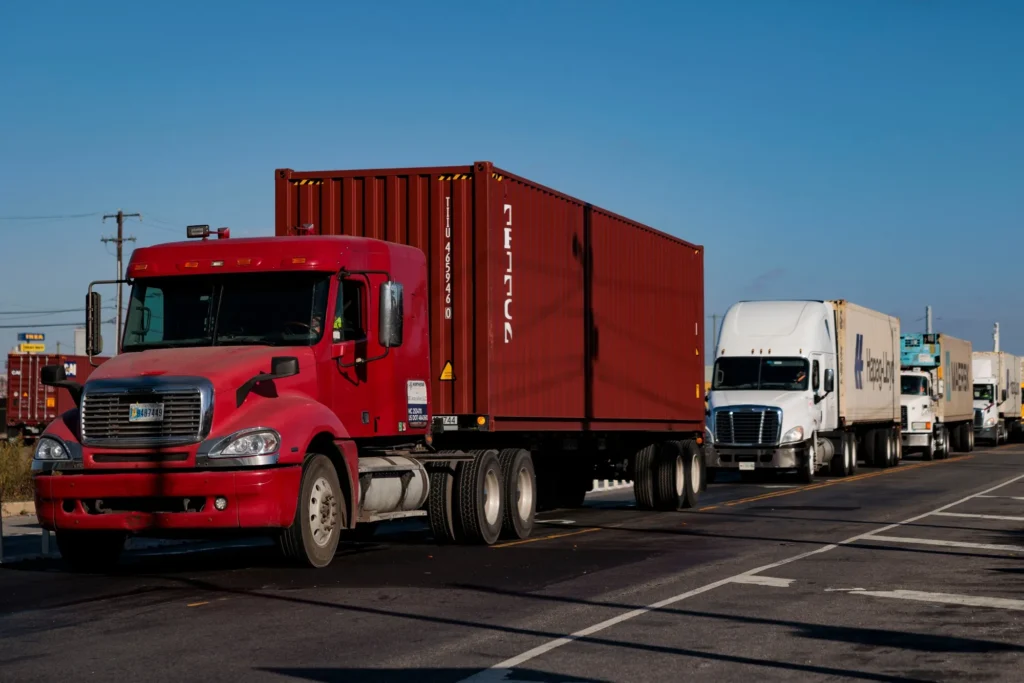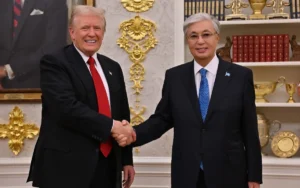United States to Impose 25% Tariff on All Imported Medium- and Heavy-Duty Trucks Starting November 1

Washington, The Gulf Observer: U.S. President Donald Trump announced on Monday that all medium- and heavy-duty trucks imported into the United States will be subject to a 25 per cent tariff beginning November 1, marking a significant escalation in his administration’s efforts to shield American manufacturers from foreign competition.
The decision follows an earlier statement by Trump last month, when he indicated that new duties on imported heavy trucks could take effect as soon as October 1 on national security grounds. He said the tariffs were designed to protect U.S. producers from “unfair outside competition” and would particularly benefit domestic manufacturers such as Paccar-owned Peterbilt and Kenworth, as well as Daimler Truck-owned Freightliner.
Under existing trade agreements with Japan and the European Union, the United States applies 15 per cent tariffs on light-duty vehicles, but it remains unclear whether the same rate will extend to larger vehicles under those agreements.
The Trump administration has also maintained policies allowing automakers to deduct the value of U.S.-made components from tariffs paid on light-duty vehicles assembled in Canada and Mexico.
The new tariff measure covers a broad range of large vehicles, including delivery trucks, garbage trucks, utility and public service vehicles, school and transit buses, tractor-trailers, semi-trucks, and heavy-duty vocational vehicles.
In response, the U.S. Chamber of Commerce cautioned against imposing new duties, emphasizing that the top five sources of imported trucks — Mexico, Canada, Japan, Germany, and Finland — are all key allies or partners of the United States, posing no credible threat to U.S. national security.
Mexico, the largest exporter of medium- and heavy-duty trucks to the U.S., is expected to be particularly affected. Government data show that imports of these vehicles from Mexico have tripled since 2019, reaching approximately 340,000 units in 2025.
Under the Canada–U.S.–Mexico Agreement (CUSMA), medium- and heavy-duty trucks currently enter the U.S. duty-free provided that at least 64 per cent of their value originates in North America, including components such as engines and axles, as well as raw materials and assembly labour.
The new tariff could also impact Stellantis, the parent company of Chrysler, which manufactures heavy-duty Ram trucks and commercial vans in Mexico. Stellantis had reportedly lobbied the White House to avoid imposing steep tariffs on its Mexican-made vehicles.
Meanwhile, Sweden’s Volvo Group is in the process of constructing a $700 million heavy-truck manufacturing facility in Monterrey, Mexico, which is slated to begin operations in 2026.
According to the U.S. International Trade Administration, Mexico hosts 14 manufacturers and assemblers of buses, trucks, and tractor-trailers, along with two engine producers.
Mexico has voiced its opposition to the new tariffs, arguing in a May submission to the U.S. Commerce Department that Mexican-built trucks exported to the United States contain, on average, 50 per cent U.S. content, including American-made diesel engines.
In 2024, the United States imported nearly $128 billion worth of heavy vehicle parts from Mexico, accounting for roughly 28 per cent of total U.S. imports in that category, according to Mexican trade data.
The new tariff move is expected to reshape supply chains across North America and heighten trade tensions with key U.S. partners ahead of the 2026 implementation of several major cross-border industrial projects.


